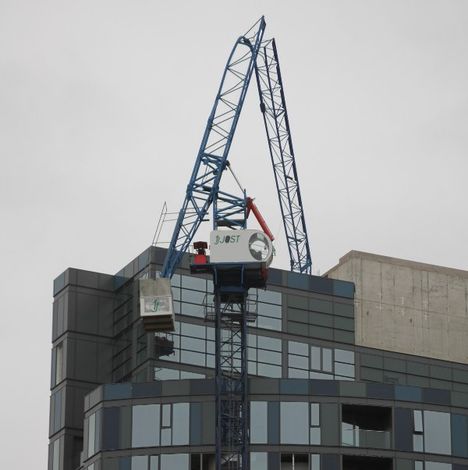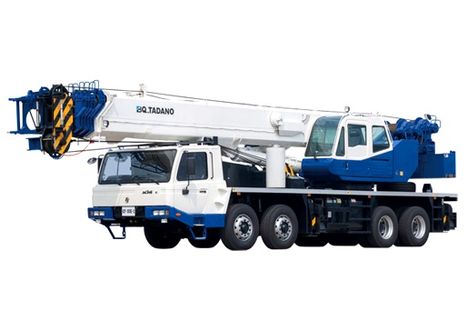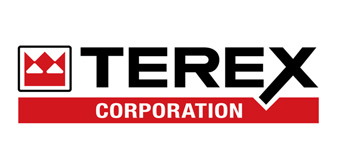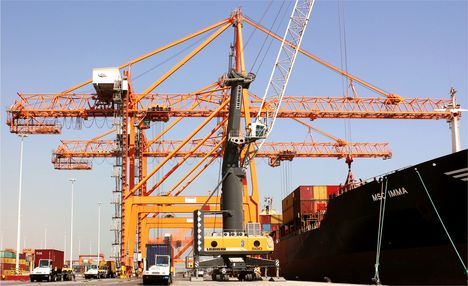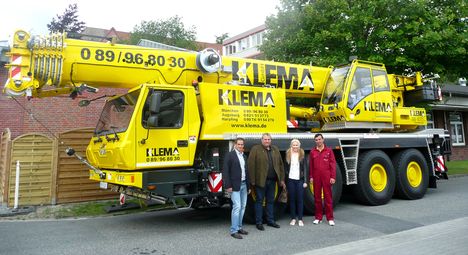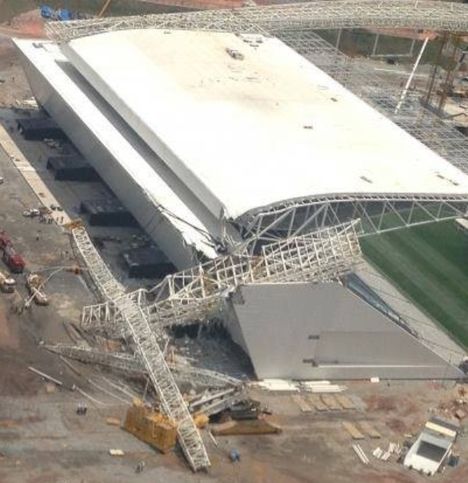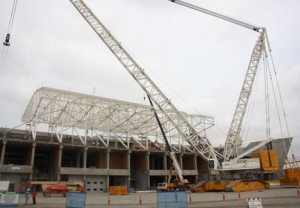Terex Cranes has published a poor set of results for 2013, with lower sales and profits.
Total revenue for the year was $1.93 billion over three percent lower than in 2012, while operating income slipped over 35 percent to $110.5 million.
The fourth quarter was even worse, with revenues sliding six percent to $480.4 million and operating income plummeting by more than 52 percent to $25.7 million. The order book at year end did improve a little over the quarter, but ended the year down 22 percent at $501.2 million.
The Material Handling and Port Services division had a poor year, but posted a very strong fourth quarter and ended the year with a strong order book, up almost 40 percent compared to the end of 2012.
The Terex group as a whole saw revenues remain flat, up just over a percent to $7.08 billion, although the fourth quarter saw growth of 12 percent, and pre-tax profits for the 12 months more than doubled to $291.3 million. Net debt at the end of the period was down marginally at $1.95 billion.
Chief executive Ron DeFeo said: “Overall, 2013 was a good year and I am pleased with the improvements and progress underway at Terex. This past year was a tale of two halves, with the second half of the year significantly stronger than the first half. Our performance in the second half was fueled by the continued strength of our Aerial Work Platforms segment and a turnaround in Materials Handling & Port Solutions. Our focus throughout the year on strengthening margins and driving financial efficiency helped deliver a strong close to the year.”
“Operationally, aerial work platforms is continuing to benefit from strong North American rental demand plus a noticeable pickup in Latin America and European performance. Additionally, the Materials Processing segment performance remains solid, delivering double digit operating margin in 2013 despite a relatively soft demand environment. Our Cranes segment failed to realise the growth that we had anticipated entering 2013. While new product launches did provide some growth, markets such as Australia, Europe and Latin America were more challenging than anticipated.”
“During 2013, we made investments and implemented actions to set us on a course toward increased profitability in 2014 and beyond. We enter 2014 with optimism around our businesses and expectations to deliver improved financial results. Much of this optimism stems from our continued focus on internal areas of improvement, such as our capital structure initiatives and business simplification, as well as the year over year benefits anticipated from the restructuring efforts undertaken in 2013.”
“Our 2014 guidance reflects the benefits of internal cost initiatives, capital structure improvements and some anticipated net sales growth. We see some signs of improvement in many parts of the world, although this is tempered with some continued market uncertainty, particularly in developing markets. Overall, we believe that the global economy will be stronger in 2014, but still modest when viewed against historic demand levels.”
The Terex crane business continues to struggle, in spite of the overall market being reasonably good in 2013. It has though made numerous changes over the past 18 months or so, some of which should kick-in during 2014.
Its radical approach to new All Terrain product development is likely to gather more followers as the new models become more familiar and legal road configurations become a more critical issue. It will also see some substantial improvements once demand for big crawler cranes picks up, as it surely will.
